Introduction
What VIRADAY is used for?
- VIRADAY is used for a treatment of Human Immunodeficiency Virus (HIV) infection in adults aged 18 years and over who have previously been treated with other antiretroviral medicines and have their HIV-1 infection under control for at least three months
Warning & Precautions
Talk to Doctor
Talk to your doctor before you take this medicine, if you:
- Are allergic to efavirenz, emtricitabine, tenofovir or any of the other ingredients of this medicine
- Have severe liver disease
- Have a history of mental illness, including depression, or substance or alcohol abuse
- Have a history of convulsions (fits or seizures)
- Have any signs of skin rash, inflammation or infection
- Have bone problems
- Are over 65 years of age
Pregnancy & Breast Feeding
- If you have taken this medicine during your pregnancy, your doctor may request regular blood tests and other diagnostic tests to monitor the development of your child
- Serious birth defects have been seen in unborn babies of women treated with this medicine during pregnancy
- Do not breast-feed during treatment with this medicine
Children & Adolescents
- Do not give this medicine to children and adolescents under 18 years of age
Driving & Using Machines
- This medicine may cause dizziness, impaired concentration and drowsiness
- If you are affected, do not drive and do not use any tools or machines
Interactions
Tell your doctor if you are taking,
- Other medicines that contain efavirenz, emtricitabine, tenofovir disoproxil, tenofovir alafenamide or lamivudine or adefovir dipivoxil
- Aminoglycosides, vancomycin, clarithromycin, rifabutin, rifampicin (medicines for bacterial infections)
- Foscarnet, ganciclovir, cidofovir (medicines for viral infections)
- Pentamidine, voriconazole, itraconazole (medicines for fungal infections)
- Interleukin-2 (to treat cancer)
- Non-steroidal anti-inflammatory drugs (NSAIDs, to relieve bone or muscle pains)
- Didanosine (used for HIV infection)
- Boceprevir, telaprevir, simeprevir, sofosbuvir/velpatasvir, medicines used to hepatitis C infection
- Atorvastatin, pravastatin, simvastatin, medicines used to lower blood fats
- Carbamazepine, phenytoin, phenobarbital, medicines used to treat convulsions/seizures
- Hormonal contraceptive(birth control pills, an injected contraceptive), or a contraceptive implant
- Methadone, a medicine used to treat opiate addiction
- Bupropion, a medicine used to treat depression or to help you stop smoking, as your doctor may need to change your dose of bupropion
- Diltiazem or similar medicines (called calcium channel blockers)
- Medicines used to prevent organ transplant rejection (also called immunosuppressants), such as cyclosporine, sirolimus or tacrolimus
- Warfarin or acenocoumarol (medicines used to reduce clotting of the blood)
- Terfenadine (used to treat hay fever or other allergies)
- Bepridil (used to treat heart disease)
- Cisapride (used to treat heartburn)
- Ergot alkaloids (for example: ergotamine, dihydroergotamine, ergonovine, and methylergonovine) used to treat migraines and cluster headaches
- Pimozide (used to treat certain mental conditions)
How to Use
- Always take this medicine exactly as your doctor has told you
- VIRADAY should be taken on an empty stomach preferably at bedtime
- Swallow the tablet whole with water
- Viraday Tablet is a combination of three medicines which slows down or stops the progression of HIV infections.
- Skipping doses increases the risk of treatment failure. Make sure that you take all your doses at the correct time.
- Viraday Tablet may cause dizziness or sleepiness. Don't drive or do anything requiring concentration until you know how it affects you.
- Viraday Tablet can cause birth defects. Use effective contraception while taking Viraday Tablet and 12 weeks after stopping it.
- It may cause weakening of your bones. Exercise regularly and take calcium and vitamin D supplements as suggested by your doctor.
- Your doctor may monitor your kidney and liver functions regularly. Inform your doctor if you develop symptoms such as abdominal pain, loss of appetite, darkened urine or yellowing of the eyes or skin.
If you take more VIRADAY
- If you accidentally take too many VIRADAY you may be at increased risk of experiencing possible side effects with this medicine. Contact your doctor or nearest emergency department
If you forget to take VIRADAY
- If you miss a dose of VIRADAY within 12 hours of when it is usually taken, take it as soon as you can, and then take your next dose at its regular time
If you stop taking VIRADAY
- Do not stop taking this medicine without your doctors advice
Side Effects
Like all medicines, this medicine can cause side effects, although not everybody gets them
Serious
- Deep rapid breathing
- Drowsiness, feeling weak
- Nausea, vomiting and stomach pain
Common
- Dizziness, headache, diarrhoea, nausea, vomiting
- Rashes (including red spots or blotches sometimes with blistering and swelling of the skin)
- Decreases in phosphate levels in the blood
- Muscle pain and weakness
- Disturbances of coordination and balance
- Difficulty sleeping, abnormal dreams, difficulty concentrating, drowsiness
- Stomach pain
- Problems with digestion resulting in discomfort after meals, feeling bloated, flatulence
- Loss of appetite
- Low white blood cell count (a reduced white blood cell count can make you more prone to infection)
- Liver and pancreas problems
- Increased fatty acids (triglycerides), bilirubin or sugar levels in the blood
Uncommon
- Swelling of the face, lips, tongue or throat
- Angry behaviour, suicidal thoughts, strange thoughts, paranoia, unable to think clearly, mood being affected, seeing or hearing things that are not really there (hallucinations), suicide attempts, personality change (psychosis)
- Pain in the abdomen (stomach), caused by inflammation of the pancreas
- Forgetfulness, confusion, fitting (seizures), incoherent speech, tremor (shaking)
- Yellow skin or eyes, itching, or pain in the abdomen (stomach) caused by inflammation of the liver
- Damage to kidney tubules Psychiatric side effects in addition to those listed above include delusions (false beliefs), neurosis. Some patients have committed suicide
- Breakdown of muscle, muscle pain or weakness
- Anaemia (low red blood cell count)
- A feeling of spinning or tilting (vertigo), whistling, ringing or other persistent noise in the ears
- Blurred vision
- Breast enlargement in males
- Decreased sexual drive
- Flushing, dry mouth
- Increased appetite
- Decreases in potassium or creatinine or cholesterol in the blood
- Protein in urine
Rare
- Liver failure, in some cases leading to death or liver transplant
- Inflammation of the kidney, passing a lot of urine and feeling thirsty
- Back pain caused by kidney problems, including kidney failure. Your doctor may do blood tests to see if your kidneys are working properly
- Softening of the bones (with bone pain and sometimes resulting in fractures) which may occur due to damage to the kidney tubule cells
- Fatty liver
- Itchy rash to the skin caused by a reaction to sunlight
HOW TO COPE WITH SIDE EFFECTS?
The occurrence of side effects varies from person to person. The following are a few ways of dealing with some of the common side effects. However, consult your doctor if these persist.
-
Coping with NauseaYou can help yourself by eating small, frequent meals rather than large ones and drinking plenty of fluids. Eat slowly. Avoid fatty, fried, spicy and very sweet foods. Eat cold or slightly warm food if the smell of cooked or cooking food makes you feel sick. Get plenty of fresh air. You could also try chewing ginger or drinking ginger tea. Eat bananas to replace potassium in your blood which can drop if you are sick (vomit). Use oral rehydration salts to replace vitamins and minerals lost through being sick. There are some medicines that can help you stop feeling sick. Speak to your doctor if your condition does not improve.
-
Coping with HeadacheMake sure you rest and drink plenty of fluids. Rest in a quiet, dimly lit room. Do not sleep more than you normally would. Do not strain your eyes (for example by looking at a screen). Do not drink alcohol. Headaches are usually temporary and usually go away with time. Ask your doctor to recommend a painkiller if they last longer than a week or get worse.
-
Coping with DizzinessThis is usually short-lived and should go away within a few days. If this happens, stop what you are doing and sit or lie down until you feel better. Lying still in a dark, quiet room may help reduce the spinning feeling. Sleep with your head slightly raised on two or more pillows. Get up slowly from a lying or sitting position. Get plenty of rest and try to relax, as being anxious can make it worse. Try taking this medicine at bedtime to reduce the symptom. Drinking plenty of water and ginger tea may also help. Avoid alcohol, caffeine, and smoking as it will make you feel worse. Avoid driving or using tools or machinery until you feel better.
-
Coping with RashThere are many treatments for a wide range of skin problems. Avoid hot showers or baths because hot water can irritate the skin. Make sure to pat your skin dry after a bath or shower. Do not rub or scratch the affected area. Leave the skin exposed to the air as much as possible. Do not use perfumed soaps or deodorants. Water containing chlorine can make most skin problems worse so avoid swimming. Avoid spicy foods, alcohol, tobacco smoke and caffeine as it may also make itching worse. Avoid excessive sun exposure, always use sunscreen and protective clothing when outdoors. Moisturizers can be used regularly to soothe and hydrate the affected area. If it does not get better within a week, speak to a pharmacist or doctor.
More Information
Storage
- Keep this medicine out of reach of children
- Store at room temperature (15-25°C)
- Do not use this medicine after the expiry date
 Disclaimer:
Disclaimer:The contents of this website are for informational purposes only and not intended to be a substitute for professional medical advice, diagnosis, or treatment. Please seek the advice of a physician or other qualified health provider with any questions you may have regarding a medical condition. Do not disregard professional medical advice or delay in seeking it because of something you have read on this website.

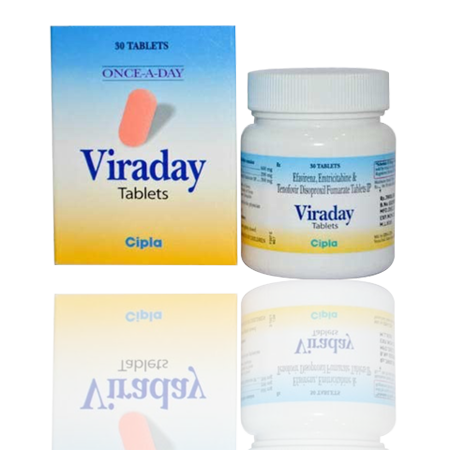
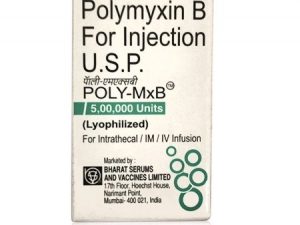
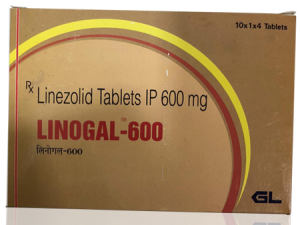
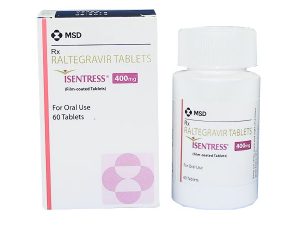
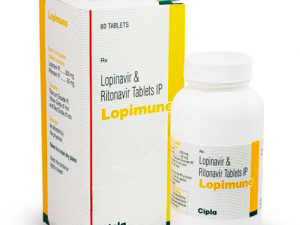
Reviews
There are no reviews yet.